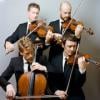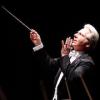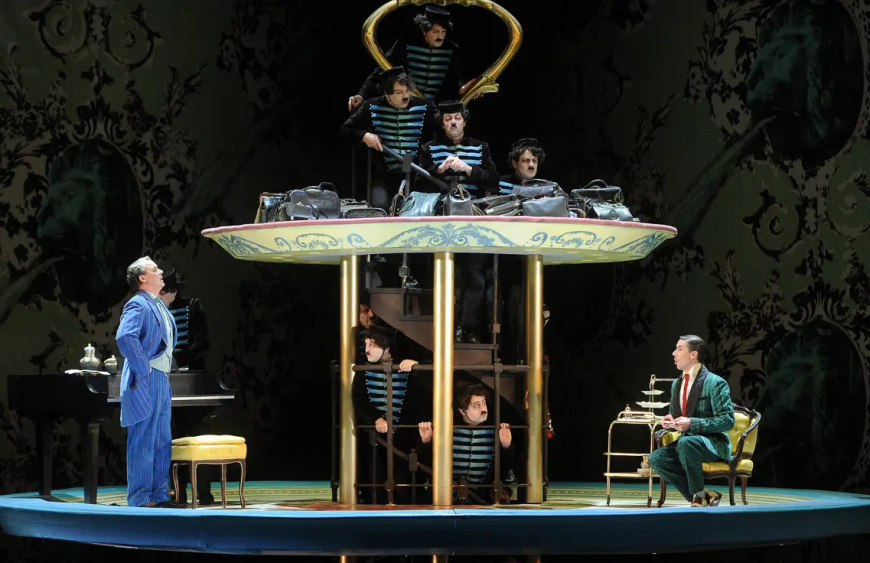
In its heyday, opera could be quite funny. From men donning fake mustaches to seduce each other’s girlfriends to a young suitor wooing fair lady in the thrall of a magic elixir that is actually just cheap wine, operas served helpings of comedy as well as tragedy in their bid to capture and elevate the essence of the human condition in music and song and dance.
And then, in the 20th century, much of this lightheartedness evaporated. Today, new operas digging into social issues and lusting after relevance commonly earn the lion’s share of critical attention. Prominent recent operas of this kind include Blue (2018), about the police killing of an unarmed Black teenager; Fire Shut Up In My Bones (2019), which fronts themes of sexual abuse and revenge; and We Shall Not Be Moved (2017), another opera about police violence.
I’m unconvinced that doubling down on such politically charged themes and tragedy is a winning strategy. This isn’t to say opera shouldn’t be political — though I’m thoroughly skeptical of its ability to tackle social issues in a way that isn’t preaching to the choir — but that there should be equilibrium and variety. Where’s the balance? Where’s the funny?
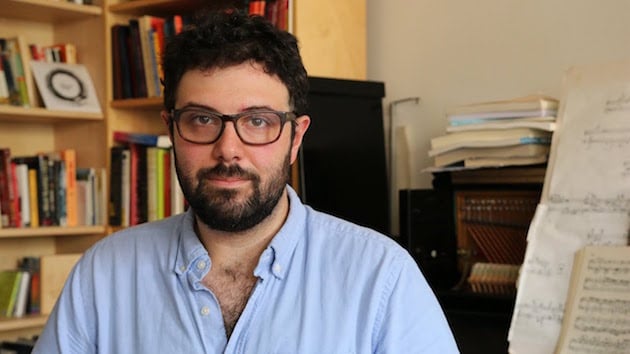
“Opera companies would love to see more new comedies,” said Brooklyn-based composer Christopher Cerrone, whose latest noncomedic chamber opera, In a Grove, earned national and local plaudits for its creativity and concision at its Pittsburgh premiere in February. (It’s now streaming on YouTube.) “I think someone could make a killing writing a comic opera,” he continued. “I keep getting asked. I think it’s more the composers than the companies who are reluctant.” Listeners would be interested in comedy. Opera companies themselves are interested, but the compositional difficulties in writing a comedy in today’s era pose significant challenges. These are worthy of discussion.
Where Comedy Went
It’s not that comedy doesn’t exist at all in the 20th century and beyond — Der Rosenkavalier, Ariadne auf Naxos, Prokofiev’s The Love for Three Oranges, György Ligeti’s Le grand macabre, Stravinsky’s The Rake’s Progress, John Corigliano’s The Ghosts of Versailles, and Jake Heggie’s Great Scott, among others, still carry the torch. But it diminishes in the latter 20th century, and the plots and characters of five of these examples harken back to 18th-century models. There’s a reason for that.
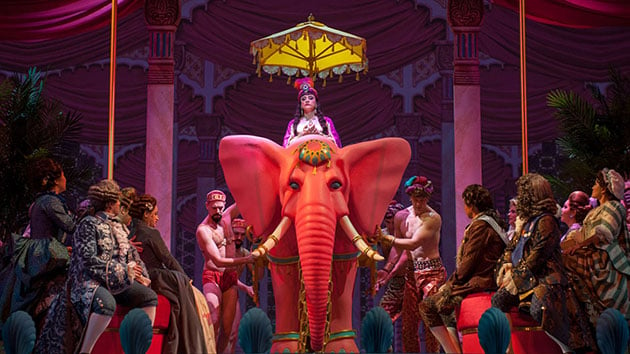
The system that produced the repertory operas historically separated comedy and tragedy. Perhaps the best example lies in France, where Louis XIV decreed that fully sung opera in French could only be produced at the Académie royale de musique. French comic opera was performed, with dialogue, at the Opéra Comique, though it typically featured comic actors with good voices rather than operatic voices. If you look at Italian opera buffa versus opera seria, the genre difference is similar, as was the prestige.
In the mid-19th century, comic opera was superseded by operetta, as businessmen built and consolidated entertainment districts in major cities. In London, Richard D’Oyly Carte, Gilbert and Sullivan’s impresario, built the grand Savoy Theatre in 1881 on the Strand, near the center of business, rather than near the traditional opera houses. In America, the nascent scene of Gilbert and Sullivan-inspired operettas merged with vaudeville, and Broadway was born, spurred by empire builders like the Shubert brothers. Comedy, lithe and topical and trend-conscious, along with the actor-singers who made it work, migrated from the old comic opera stages to the new ones in the more profitable entertainment districts. Comedy as a genre slunk out of opera and onto Broadway and, eventually, movie theaters.
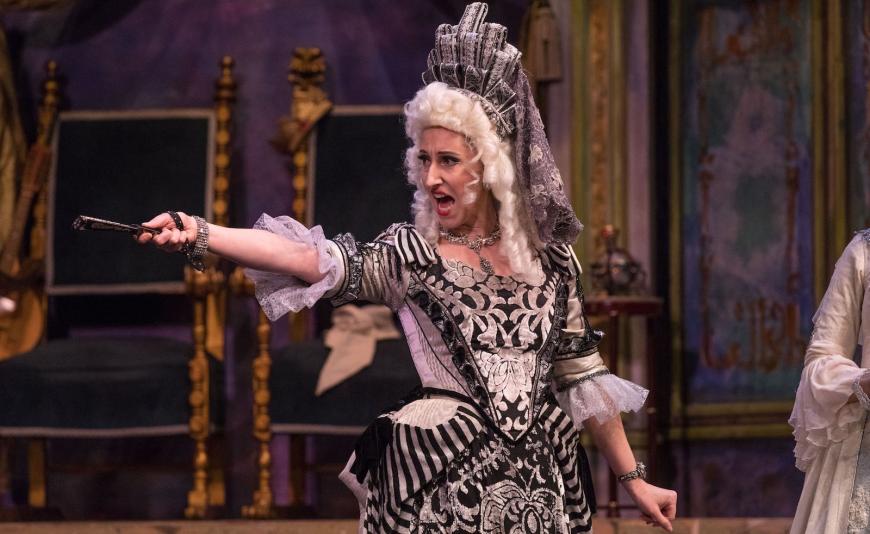
As a consequence, 20th- and even 21st-century operatic comedy often looks back to these outdated 18th-century models as guideposts. And there isn’t much appetite among composers for competing with Broadway repertory with the same style of writing and plotting.
Modern Gravitas
Still, opera in the 20th century had additional difficulties. Composers were inventing new musical languages and styles at speed, and even though some were attempting comedies in those styles, it was hard to bring the audience along.
It’s difficult to pin down rules for humor, but incongruity, the breaking of expectations and norms, seems to be a common ingredient. In music, this could mean abrupt key shifts, out of tune notes or melodies, sudden shifts in tempo or rhythm. When many composers abandoned historical theories of harmony, effectively throwing out the rulebook, listeners lost an ability to measure what they’d heard against what came before. “It's very, very hard to tell jokes if you don’t have the rules,” said conductor and composer John Mauceri, who in April published The War on Music: Reclaiming the 20th Century.
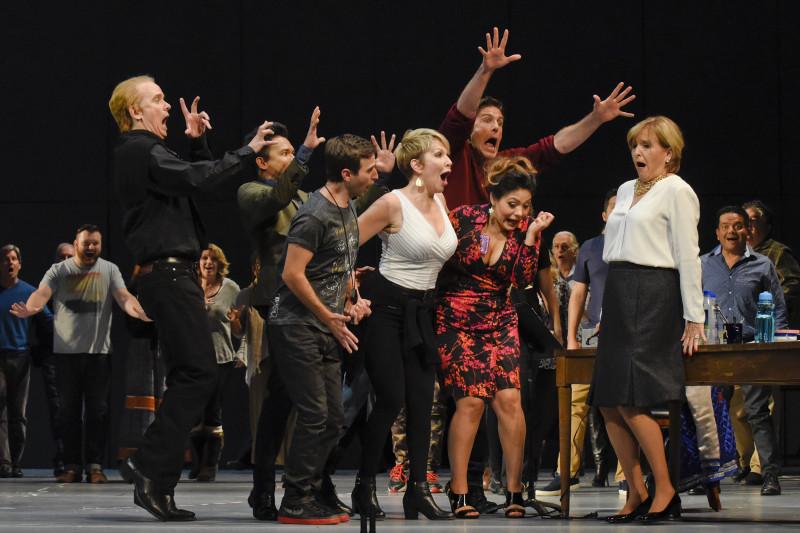
Cerrone explained further: “The very language of contemporary music struggles with humor. I’d say if things are coming out of a modernist tradition, the musical language tends to focus on dissonance and non-repetition of elements. Modernism was about starting from zero, and then we were in this common state of rebuilding endlessly.”
The average listener, even those passionate about the art form, shouldn’t be required or expected to assimilate an entirely new musical lexicon during each opera. If anything, nontonal musical language represents the abstract and the impenetrable to most listeners. Mauceri, who studied with and later worked with Leonard Bernstein, the man who did more to inject classical music back into the popular vernacular than any other composer in the latter half of the 20th century, pointed out that the only time Bernstein wrote a 12-tone row was to represent boredom in the song “Quiet” in his operetta Candide. “Part of why we so value Mozart is that he was able to be fun and funny and life affirming, even in, say, Don Giovanni,” Mauceri said. “Why do we need that balance? Humans want fun! There's nothing wrong with wanting to laugh.”
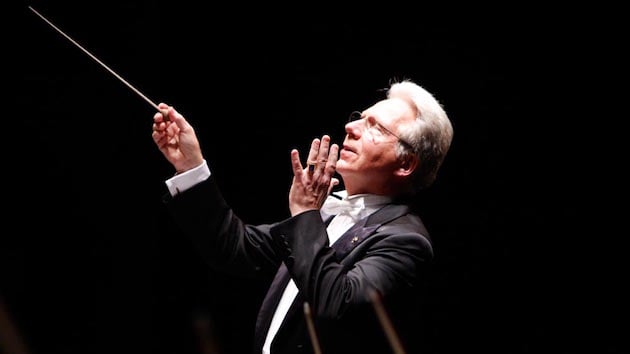
Cerrone pointed to works by composer Andrew Hamilton like Music for People Who Like Art (2018) and Gerald Barry’s The Importance of Being Earnest (2014) as rare, humorous exceptions. Of course, there are others. Modernism can lend itself to zaniness and absurdity, it seems. “The challenge is those works present significant musical challenges to perform,” Cerrone said. “They’re just hard.” There’s no rule against using tonality or more familiar musical styles in opera, and many composers are moving in that direction once more, eschewing the more impenetrable, academic styles of writing. This hasn’t led to an uptick in comedic operas, however. Not yet.
Comedic Timing
Opera San José’s recently appointed general director, Shawna Lucey, said she’s made a life goal to see more new comedic operas produced during the coming seasons. “There is also this panache in opera the art form,” she said. “It’s a wonderful thing to be but it’s also OK for us to dig in the dirt of comedy, that’s part of what it means to be human.” Aside from the issues with musical language, Lucey also points to the inherent difficulty in writing comedy. “Comedy is a bullseye, you either hit it or you don’t,” she said. “There’s no margin for error. It is so, so much harder than writing a drama.” Add to this the fact that opera companies themselves also have little margin for error in terms of budget, and it’s easier to understand why composers and companies may not be as willing to take a risk on a new comedy.
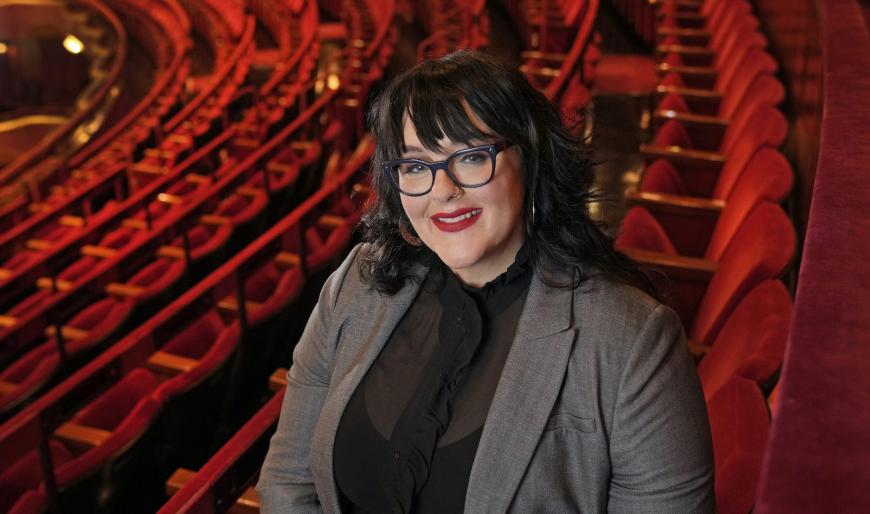
Comedians work material in smaller clubs for years before breaking through. Developing an opera involves a workshop or two, but there’s little opportunity to rework and adjust and tweak, a process essential for teasing out the funny. “It takes years to figure these things out,” she said. “What does it look like? What does it sound like? It’s absolutely possible with concentrated effort, but just like comedy itself, it’s all in the timing.”
“Another way of looking at this: contemporary literature suffers from many of the same issues,” Cerrone said. “A lot of ‘serious’ or ‘fine’ art defines itself as being against the grain of commerce, ‘popular art.’” No one is arguing that there aren’t humorous moments in contemporary opera, but as an art form, its pursuit of seriousness, to my ears, is stifling potential interest in newer works.
“We as an art form have a responsibility to tell serious stories seriously,” Lucey said. “Here’s to opening up and having the great American composers speak to the day. But part of our job as a part of the next generation of operatic leaders is to go out and say you belong.” Providing additional space for laughter and simple enjoyment of the art form rather than capturing tragedy and dwelling solely on today’s problems could help accomplish that goal.


